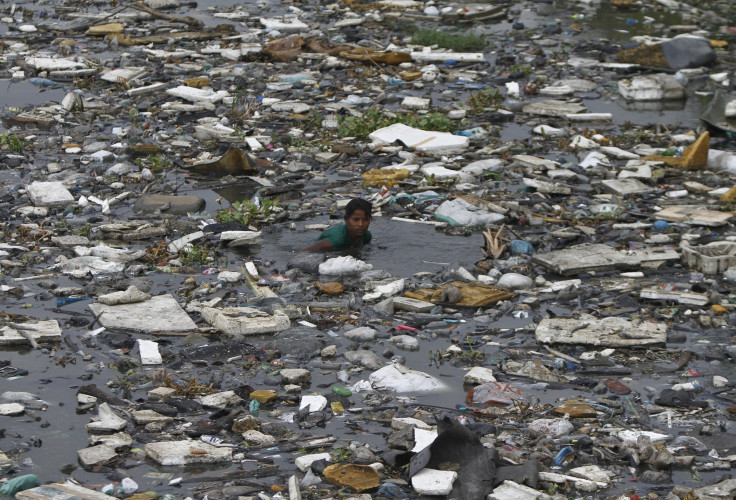Ocean Pollution: Dead Whale With Stomach Full Of Plastic Bags Found Beached, Starving

Given the abundance of plastic saturating the world’s oceans, it’s no surprise that marine animals frequently mistake inedible items for food. A Cuvier whale found off the coast of Norway over the weekend did just that. Researchers found the whale beached on the shore with at least 30 plastic bags and other items wedged inside its stomach that had prevented it from eating.
“It wasn’t like it was in just part of the stomach. It filled up the whole space. I think the whale has been in pain,” Dr. Terje Lislevand, a zoologist at the University of Bergen in Norway, told the Bergens Tidende newspaper, noting that it was emaciated when found. “I don’t think it’s been comfortable to have this in the stomach. It’s the explanation of why the animal acted so strange and stranded.”
Numerous efforts were made to get the whale back out to sea, but scientists were ultimately unsuccessful and had to shoot the animal. Researchers said the 20-foot whale probably mistook the plastic bags for squid, one of the main sources of food for Cuvier whales.
<blockquote class="reddit-card" data-card-created="1486152464"><a href="https://www.reddit.com/r/pics/comments/5rmd5j/contents_of_a_whales_stomach/?ref=share&ref_source=embed">Contents of a whale's stomach</a> from <a href="http://www.reddit.com/r/pics">pics</a></blockquote>
<script async src="//embed.redditmedia.com/widgets/platform.js" charset="UTF-8"></script>
Whales and other marine mammals are often found to have ingested manmade items. Thirteen sperm whales beached themselves on Germany’s North Sea coast in 2016 and at least four of them were found to have plastic in their stomachs. Among the items researchers discovered were a 43-foot shrimp fishing net, a car engine cover and a plastic bucket. A number of pilot whales that beached off the coast of Scotland in 2013 showed elevated levels of toxins from pollutants, which researchers believed caused the disorientation that led to the beaching.
Plastic pollution in the ocean causes the death of more than 100,000 marine animals and one million seabirds every year, according to the United Nations. In a 2016 report on the subject, the World Economic Forum reported that if plastic consumption continues its current trend, plastic will outweigh fish in the world’s oceans by 2050.
© Copyright IBTimes 2024. All rights reserved.












